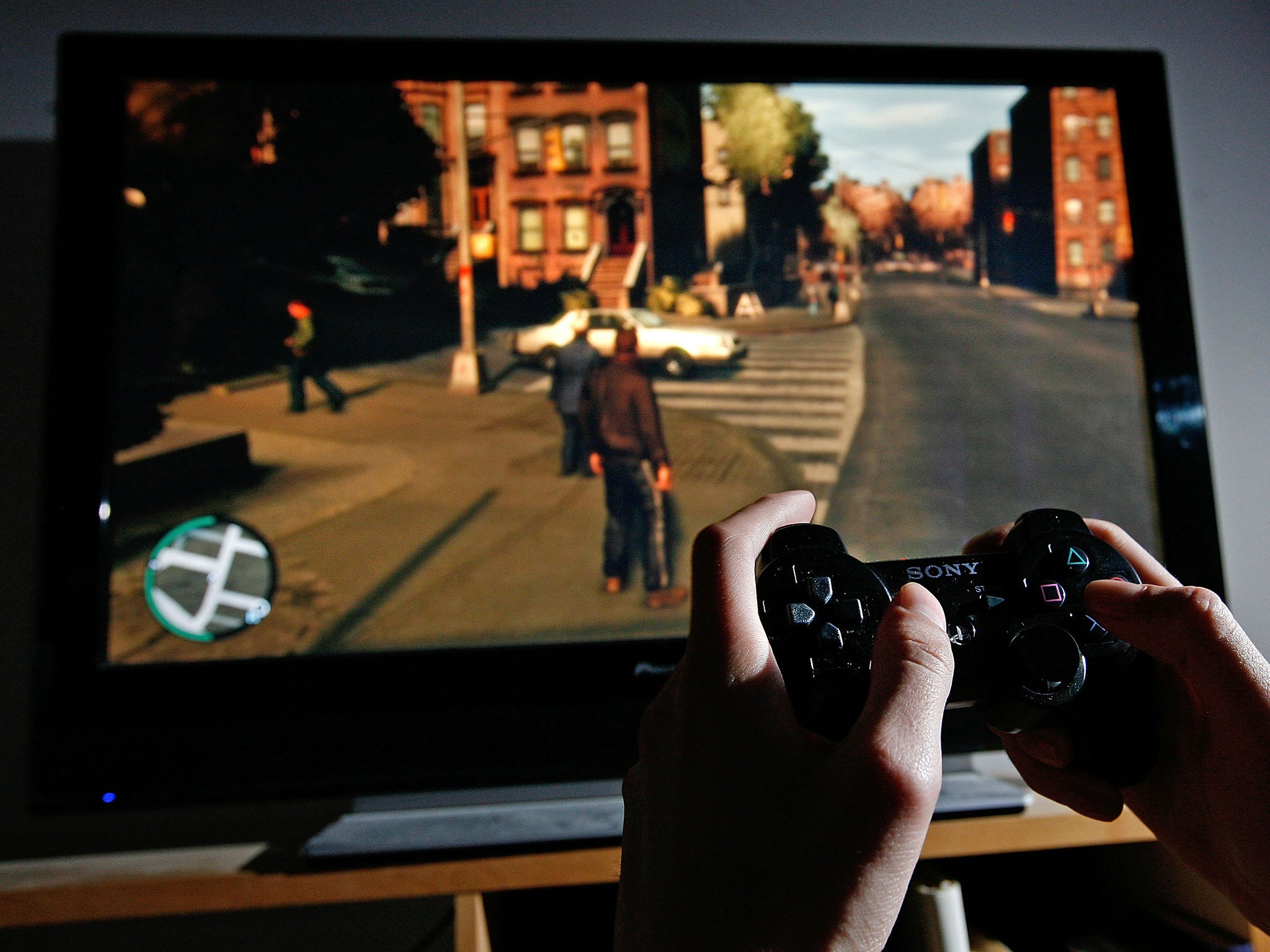If you're a male geek who acts out macho sexist fantasies with video games, you've become a mainstream jock
I'm a white male geek myself - and I know our community needs to admit that it has a problem

Your support helps us to tell the story
From reproductive rights to climate change to Big Tech, The Independent is on the ground when the story is developing. Whether it's investigating the financials of Elon Musk's pro-Trump PAC or producing our latest documentary, 'The A Word', which shines a light on the American women fighting for reproductive rights, we know how important it is to parse out the facts from the messaging.
At such a critical moment in US history, we need reporters on the ground. Your donation allows us to keep sending journalists to speak to both sides of the story.
The Independent is trusted by Americans across the entire political spectrum. And unlike many other quality news outlets, we choose not to lock Americans out of our reporting and analysis with paywalls. We believe quality journalism should be available to everyone, paid for by those who can afford it.
Your support makes all the difference.As white male geeks are keen to point out, they’re often as much the victim of “jockish” patriarchal mainstream culture as anybody else. Last year a much publicised post by Scott Aaronson, who as a professor at MIT represents a paragon of geek achievement, articulated the inner conflicts many geek men feel in their relationships to women. But Aaronson’s argument, and the perspective it represents, only highlight the incredible failing of many white geek men. If you share the experience of people who have been bullied and abused by mainstream culture, why can’t you treat others with empathy, instead of playing out a fantasy power-trip at their expense?
Fantasy is the central and shared love of geek culture. Not the capital F “Fantasy" of JRR Tolkien’s Lord of the Rings, but the human psychological capacity for fantasy explored by thinkers like Sigmund Freud. Sci-fi books, comics, RPGs, video games and pretty much everything else in geek culture is filled with fantasies of all kinds, and the creators we love most are the ones who draw us deeply into fantasy worlds.
Flights of fantasy can be hugely entertaining; as someone who saw the most recent Star Wars five times in the cinema, I can’t deny that. And fantasy can be therapeutic: living out our desires in fantasy - even sometimes violent fantasy - can help us understand and even control those desires in better ways.
But fantasy can also become obsessive and unhealthy. All too often the fantasies of geek culture are about power, specifically power exerted over others through violence. From Conan the Barbarian to Geralt of Rivia, the stereotypical “hero” of geek culture is a muscular man with a sword who kills things and in return gains fame, fortune and the adoration of women.
No doubt games like The Witcher 3 and Batman: Arkham Knight being celebrated by BAFTA today are fun and entertaining. But they’re also transparent male power fantasies. We can’t celebrate these games on one hand while entirely divorcing them from the behaviour of some who play them on the other.
So what can we learn from the Video Game BAFTAs announced today? One that has attracted a lot of attention is Her Story. It’s not the usual pick for a video games award, but while video games have gained a notorious reputation for misogyny, they’ve also been the focus of intense efforts to make gaming more open to female players and creators. Women make up over half of the audience for games today, and the success of Sam Barlow’s experimental game suggests their influence over the industry is growing.
Of course the lion’s share of attention at the BAFTA game wards will still go to Witcher 3, the latest episode in a franchise which has come in for fierce criticism for its representation of female characters. A powerful reminder of why this matters was delivered earlier this week when a stark account of alleged sexual abuse and harassment in the geek community, referring to it as ‘white male terrorism’, went viral across the internet.
A substantial number of white male geeks have a profound problem with women, and black people, and gay people. What the geek community is still struggling to understand is: why?
Let’s be clear, this isn’t a simplistic matter of “video games cause violence”. But if you’re a geek male spending hundreds or even thousands of hours obsessively absorbed in the power fantasies of superhero movies like Deadpool or video games like Grand Theft Auto, you might want to ask yourself some serious questions about why.
Maybe you’re just a fun-loving geek. But if your downtime is also taken up with hurling abuse at women online as part of #GamerGate, or whining about another female lead in Star Wars: Rogue One, then maybe you’re something much worse. Maybe you’re the kind of white geek male described in the Latining post. Maybe you need to change.
Join our commenting forum
Join thought-provoking conversations, follow other Independent readers and see their replies
Comments